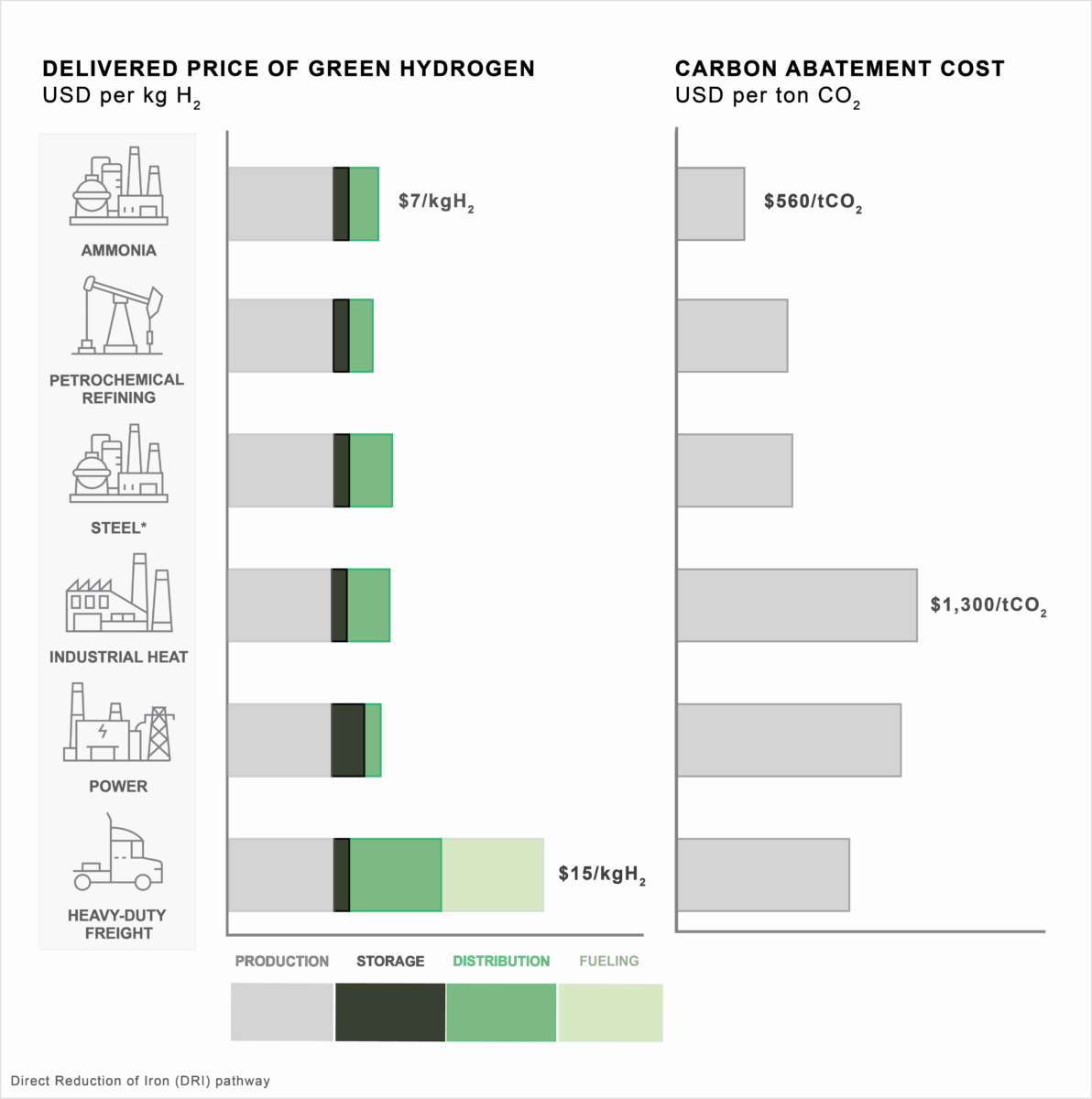Harvard University researchers have determined that prospective hydrogen costs are significantly underestimated because most scenarios fail to account for storage and distribution costs and their variability across sectors. “At current delivered prices, green hydrogen is a prohibitively expensive abatement strategy, with carbon abatement costs of $500 to $1,250 per ton of CO2 across sectors,” the researchers said in their study, which was published in Joule. “Even if production costs fall to $2/kg, low-cost carbon abatement opportunities will remain limited to sectors already using hydrogen, such as ammonia, unless storage and distribution costs also decrease.”
Kore Infrastructure has told pv magazine that it aims to produce 20,000 metric tons of hydrogen by 2030 and expects its LCOH to range between $1/kg and $2/kg. Kore's slow pyrolysis technology heats biomass to 1,000 F (537.8 C) without oxygen, allowing hydrogen, oxygen, and carbon in the biomass to react and form a biogas. This biogas primarily consists of hydrogen, methane, carbon monoxide, and carbon dioxide, with a heat value about half that of natural gas. The company plans to launch its first commercial hydrogen production installation in 2024, using organic waste as feedstock in a closed-loop process.
Masdar has signed agreements with three Norwegian companies to explore green hydrogen opportunities. It has signed a deal with ICP Infrastructure, an infrastructure fund manager backed by the Aker Group, to explore partnership and investment opportunities in green energy infrastructure in Europe, including potential collaborations in renewables in the Nordics. A second agreement, signed with Aker Horizons Asset Development, will explore joint development and investment opportunities along the “power-to-green -hydrogen” value chain. Masdar also signed an agreement with Yara to explore collaboration and investment opportunities along the “power-to-green-ammonia” value chain.
Korea Hydro & Nuclear Power (KHNP) has signed an agreement with Czech Hydrogen Technology Platform (HYTEP) for “nuclear clean hydrogen technology development and business cooperation, technology development and business support in other hydrogen fields; and improvement of hydrogen policy and regulations and information exchange.” The two companies have also agreed to jointly build clean hydrogen infrastructure and develop hydrogen technology in Europe.
This content is protected by copyright and may not be reused. If you want to cooperate with us and would like to reuse some of our content, please contact: editors@pv-magazine.com.



By submitting this form you agree to pv magazine using your data for the purposes of publishing your comment.
Your personal data will only be disclosed or otherwise transmitted to third parties for the purposes of spam filtering or if this is necessary for technical maintenance of the website. Any other transfer to third parties will not take place unless this is justified on the basis of applicable data protection regulations or if pv magazine is legally obliged to do so.
You may revoke this consent at any time with effect for the future, in which case your personal data will be deleted immediately. Otherwise, your data will be deleted if pv magazine has processed your request or the purpose of data storage is fulfilled.
Further information on data privacy can be found in our Data Protection Policy.